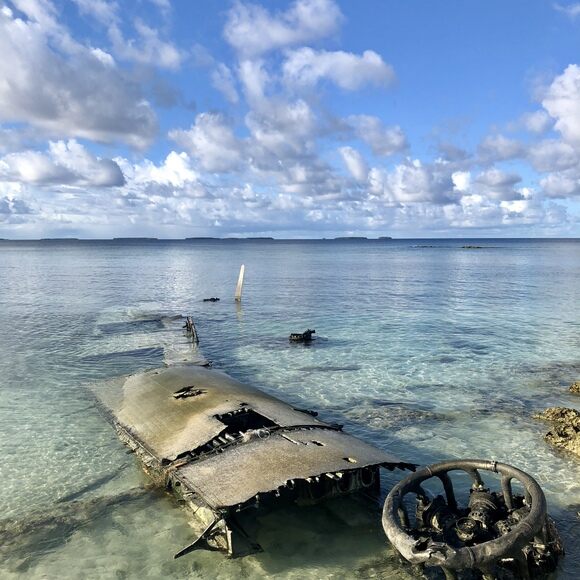World War II (WWII) is one of the well-documented wars that lasted from 1939 to 1945.
Many islanders from the Pacific region were part of WWII with Fijians volunteering for military service with the Fiji Military Forces.
Stories of war were told by war veterans often on sacrifices during their service.
An islander’s story shared on October 1977 vividly describes him escaping from Japanese soldiers. Banaban war straggler, Rianibou Inoke escaped from Japanese evaders and lived in the jungle for 18 months after WWII.
He had visited Fiji back in 1977 for the first time since he escaped from a prison-of-war-camp in the Marshall Islands in 1943 and shared his story with this newspaper.
He and his family were among the Banaban people taken from Ocean Island by the Japanese during World War II.
The article published on Monday October 31, 1977 reported that Mr Inoke was placed in a labour camp on Kusae Island, where he and the other Banabans grew food for Japanese troops and helped to build camps.
“Men, women and children worked from dawn to dusk in the fields on a diet of kumala (sweet potatoes) leaves and coconuts and were forced to supplement their diet in any way they could without being seen by the Japanese, “Mr Inoke said.
He said that punishment for stealing food was severe, an inch would be cut off the little finger for stealing a coconut and for serious offences like trying to escape, and death by slitting the throat was the penalty.
One day, Mr Inoke decided to go fishing to help feed the hungry children and he slipped away from a working party.
His hunger overcame him and he lit a fire and began to cook some of the catch for himself when a Japanese officer who had spotted the smoke arrived in a canoe, with two islanders.
He was so absorbed in cooking the fish that he did not hear them walking on the sand and was captured and bound.
Realising that death was around the corner, Mr Inoke decided he had to escape. He had been bound with tree fibre which he broke and then attacked the Japanese officer, knocking him into the sea. He grabbed a stone and knocked him unconscious and made good his escape.
Mr Inoke thought he had killed the officer, but was not really sure.
He said the two islanders who had stood back and watched the fight dragged the officer from the sea as he ran into the bush.
Seven months later the war ended, but it was not until 18 months after that Mr Inoke surrendered to the Americans.
For two years he avoided all contact with humans, living on coconuts, fish and leaves and sleeping in the bush.
He spoke to no one until some islanders saw him and told him the war was over.
He refused to accompany them but about a week later American troops on the island came to convince him the war had been over for some 18 months.
Mr Inoke said he had still been dressed in the shorts he had escaped in and had grown a long beard and shoulder length hair.
He had decided to remain in the Marshall Islands working for the American on Pohnpei Island where he lived with his second wife and ten children.
The Americans had evacuated his first wife and three children to Rabi Island, but Mr Inoke did not want to follow immediately as he wanted to stay in the safety of the Marshall Islands and his first wife remarried.
On one of his trips as crew aboard an American cargo ship to Japan he met and married his second wife.
He was in Fiji visiting his brothers and sisters after 35 years and planned to go to Rabi Island the following week.
He had met one of his sons from his first marriage who was working as a mechanic.
He stayed in Suva with Reverend Tebaiti Tawaka who was also among the Banabans taken to the Marshall Islands. Reverend Tawaka
was only five at the time.



